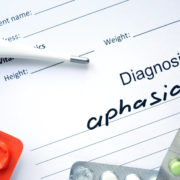10 Cognitive Exercises to Help Recover from Traumatic Brain Injury
Every year, traumatic brain injuries (TBIs) account for about 2.8 million emergency situations. This serious injury is more common than you might think — and the consequences can be hard to recover from.
If you or someone close to you has had a TBI, you know just how difficult the recovery can be. It may take months or even years for someone to heal. However, cognitive exercises can go a long way toward speeding up the healing process.
If you or a loved one is struggling to communicate due to a TBI, it’s crucial to get the professional help you need. Click here to schedule a free introductory call with Great Speech. This way, you will know you are addressing the recovery of speech and language caused by a TBI in the most direct way possible.
Wondering which exercises are best for this unique recovery situation? While your doctor should point you in the right direction, we’ve also put together some great ideas for post-TBI recovery. Keep reading to learn about the best brain rehabilitation exercises to try!
Try Something New
When your brain is healing, sometimes it’s best to start slow. You might be a long way off from doing complex math problems — and that’s okay! You can start with the simple ideas and build your way up.
One great way to get started on the path to recovery is simply to try something new. This doesn’t have to be anything major, like exploring a new city or learning a new language. Instead, start even simpler.
Try a new food, or walk home using a different path than usual. Play a game you’ve never played before. Take a new exercise class.
Doing new things gives you the motivation to keep moving forward on the recovery path, even when it’s difficult. Not only that but when you have new experiences, your brain actually starts making new neurons.
Pay Attention to Your Food
As you try new foods or even things you’ve had before, try to name specific ingredients that you taste. Start with the obvious ones, and work your way into the subtle tastes.
This will help you tap into your senses, which brings us to the next step.
Seek Out Sensory Experiences
The more of your senses you can activate at once, the more your brain gets engaged.
You can start with a single sense, like taste, as described above. But you should also start to add in experiences that invigorate multiple senses at once.
For example, try checking out the produce at your local farmer’s market. Look, touch, smell and taste the foods available. Listen to the sounds of the market.
Or you could simply take a walk outside, where nature provides stimulation for all of your senses. Pay attention to what each sense is telling you. This will help your brain forge new connections, too.
Switch Hands
If you’re right-handed, switch to your left one for a few activities each day. If you’re left-handed, do the opposite.
This helps spur activity on the other side of your brain. It also strengthens your neurons by getting them working in innovative ways.
You can also get similar effects by doing normal things backwards or upside-down. For example, try looking at your clock upside-down when you need to check the time.
Practice Memorization
As you work your way through these simple brain injury exercises, you’ll eventually be ready for more challenging tasks.
Add a new level of difficulty by practicing memorization, a little at a time. Don’t worry if you don’t get it right away — you benefit from the practice, no matter what.
For example, the next time you’re at the grocery store, try to remember a few things from your grocery list before you look at it. Work on remembering the words to a new song.
As time goes by, increase the challenge level. Try memorizing longer lists, or remembering things for longer periods of time.
If you aren’t making continual progress on your own, it’s important to seek the support of a specialized speech pathologist on our virtual team.
Our speech pathologists are trained professionals who can help you communicate with confidence and regain lost skills caused by a TBI. The first step to connecting to one of our specialized virtual speech therapists is to book a free introductory phone call by clicking here.
Draw a Map
One great way to work on building memory to use is to draw a map using just your memory.
You might start by drawing a map of a path that you’re very familiar with, such as from your house to the grocery store. To make it more challenging, draw a map of a new route from memory after you’ve completed it.
Read Out Loud
Reading, speaking and listening all engage different parts of the brain, so this is a great way to get your brain feeling challenged.
You can read out loud to a child, a pet, or even yourself. If reading out loud poses too much of a challenge, start simply by listening to a book on tape first.
Challenge Your Motor Skills
Work on projects that require lots of fine motor skills. If you learn a new skill at the same time, you’ll double up on the brain benefits!
You can try drawing or painting, knitting, or even just putting together a puzzle. Board games with small pieces, like cribbage, can also work well.
Strengthening those hand-eye connections will help your brain heal faster — plus, you can have a lot of fun doing it.
Keep a Journal
Journaling is a great way to use your fine motor skills, memory, senses, and more all at once.
You don’t have to write about your day, like a diary. You can simply jot down all of the things you’re experiencing with your various senses. For example, try sitting outside and writing what you see, smell, hear, feel, or taste.
This exercise might feel relaxing, but it will also help improve your cognitive abilities!
Do Mental Math
As you get better at these tasks, challenge yourself by doing some mental math.
Even simple addition or subtraction is valuable. Do easy problems first, then work your way toward harder ones.
Ready to Try These Cognitive Exercises?
When you hear “cognitive exercises,” you might feel intimidated. But as this list shows, there are many ways to promote brain healing while having fun at the same time.
If you try everything on this list, you won’t only recover faster from a TBI — you might also pick up a new hobby or skill along the way.
Of course, it’s also important to support these exercises with help from professionals. Online speech therapy is another great way to support your recovery. Schedule your free introductory call with us today to get the support you need.












